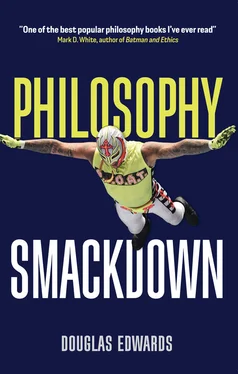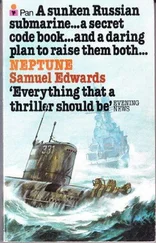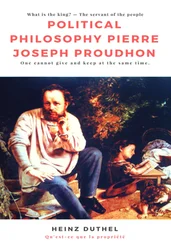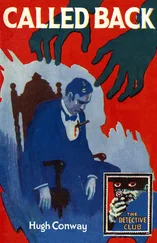The moment when I really became gripped, though, was WrestleMania X, and the triumph of Bret “Hitman” Hart. Bret, at the time a classic babyface, or good guy, was a spirited, plucky hero in distinctive pink and black attire, who, despite not being the biggest guy in comparison to behemoths like Hulk and Warrior, relied on his technical expertise and skill to work his way to the top. At the time Bret was feuding with his brother Owen, and the story of their feud resonated with me. A classic story of sibling rivalry, it hit close to home: my brother and I constantly competed and strove to beat each other, no matter what we were doing. Only 18 months apart, we played pretty much any game you could think of, and the story was always the same. Me, trying to prove that, because I was older, I was better, and him trying to show that that was nonsense. Bret and Owen’s feud, pitched as it was with Bret the babyface and Owen the heel (bad guy) spoke to my 11-year-old self as a mirror of my experience: Bret even had brown hair, and Owen blonde hair, just like me and my brother!
After a shock loss to Owen in the opening match of WrestleMania X (which is also regarded as one of the best matches of all time), Bret overcame the odds to defeat the huge Yokozuna in the main event to become the WWF Champion. All the other good guys came out from the back to celebrate, lifting him up on their shoulders, as Owen looked on, scowling.
This cemented Bret’s status as my hero. And my brother, obviously, mocked me mercilessly for this whenever the opportunity arose. He would support whoever Bret faced. When I bought a Bret action figure, he bought a Ric Flair one. When we would wrestle at home, he would always assume the character of whoever Bret was facing at the time, while I valiantly tried to work out how to lock him in the Sharpshooter, Bret’s finishing submission hold. I think I only managed it once, but it was great. He got his revenge with a Pedigree on a block of wood.
As we progressed through our teens, we were lucky to get Sky TV at home, which meant we could watch WWF weekly shows and monthly pay per views. In 1997 – a pivotal year for the WWF – we watched Bret’s feud with Stone Cold Steve Austin, culminating in the spectacular submission match at WrestleMania 13. 1997 saw Bret become WWF Champion again, and progressed ominously towards his showdown with long-term nemesis Shawn Michaels at Survivor Series. After a long brawl, the match was reaching its culmination when Michaels put Hart in Hart’s own sharpshooter move. In a confusing sequence, the referee called for the bell, and Hart looked bewildered as Michaels went to the back celebrating. “Haha, he submitted”, crowed my brother, as I looked at the screen fading to black in disbelief – no, he can’t have done, he’s Bret Hart! What just happened?
We didn’t know it at the time, but we had just witnessed one of the most seismic and controversial moments in pro wrestling history, and one that would change the pro wrestling industry: the Montreal Screwjob. It was an event that would open the doors to the “reality” behind the wrestling business, and be of great interest to me later on, as a philosopher.
Soon after this, my brother lost interest in wrestling, and I started watching it with my friend Chris. We were watching during the legendary “Attitude Era” of the late 1990s/early 2000s, when Stone Cold Steve Austin and The Rock reigned supreme. We would stay up late into the night playing WWF No Mercy on the N64, and watch the monthly pay per views which, due to the time difference, ran from 1 a.m. to 4 a.m. on a Sunday night. We’d emerge bleary-eyed to school the next day, much to our parents’ dismay. We discovered the alternatives to the WWF. WCW had the New World Order, spectacular cruiserweights like Rey Mysterio Jr. and Eddie Guerrero, and the hilarious hijinks of Chris Jericho. In the early days of online video, we’d find clips from the rebel outfit ECW of Rob Van Dam, Taz, Sabu, Rhino and the gang putting each other through tables, jumping off balconies, and kicking chairs into each other’s faces. What we couldn’t watch, we’d find out about through wrestling news websites, like Jimmy Van’s knowyournews.com.
After Chris and I went our separate ways to university, the WWF subsumed these other companies, transformed into World Wrestling Entertainment (WWE), and I didn’t watch much wrestling for a while. During this time, I discovered philosophy, which became something of an obsession of its own, and much of my time was devoted to it through undergraduate and graduate studies, and into my academic career, the early stages of which I spent in Ireland and Scotland. I would occasionally dabble in some wrestling-related stuff on the internet (particularly CM Punk’s “pipebomb” promo of 2011), but a lot of it passed me by. I did consider using the different ways you can win a wrestling match as an analogy for a view about truth I was developing, but ultimately decided against it.
Then, in 2014, I moved to the United States, and got cable TV. WWE Raw and SmackDown! were now available for me to watch live. I started watching again. I got a trial for the WWE Network and discovered all my old favorite WWF, WCW, and ECW shows from growing up. I began to learn about New Japan Pro Wrestling. I also, and this was a crucial part of my revived interest in wrestling, started listening to a number of podcasts. Starting with podcasts by former or current wrestlers Steve Austin and Chris Jericho, I went on to more fan-based productions, like The Lawcast , which reviewed old wrestling shows. I then branched out into the Conrad Thompson productions Something to Wrestle with Bruce Prichard , and 83 Weeks with Eric Bischoff , along with contemporary review shows like We Enjoy Wrestling and WrestleTalk’s WrestleRamble. Listening to these shows, and realizing the thirst for the reality behind the wrestling business that they aimed to quench, made me see pro wrestling in a whole new light.
Moreover, I started watching live wrestling, which allowed me to experience the phenomenon in a whole new way. My first live wrestling event was a WWE house show of around 3,000 fans in Utica, NY, in 2016, and since then I have attended a variety of wrestling shows, from the smallest to the largest. I have seen local promotions Dynasty Pro Wrestling and New York Championship Wrestling present shows in a local sports center in Whitesboro, NY, with around 150 fans, to a larger independent company, Northeast Wrestling, putting on shows for around 3,000 fans in Poughkeepsie, NY. I also went, with my friend Chris, to Madison Square Garden to see the New Japan Pro Wrestling/Ring of Honor G1 Supercard, with around 20,000 fans, and, the same weekend, we went to WrestleMania 35 at MetLife Stadium in New Jersey, with around 80,000 fans.
As my relationship with pro wrestling was revitalized, my career as both a teacher and writer of philosophy continued to develop, and I published a number of articles and books. After sneaking a Stone Cold Steve Austin reference into my book on truth, I began to realize that these two interests – philosophy and pro wrestling – were things that had a lot more in common than I first realized. Both are often misunderstood and marginalized in popular culture, yet seem to maintain an omnipresence on the fringes of public consciousness. Both are seen as niche activities that have little to do with the “real world”. Both involve a degree of creativity and pretense, and both require flair and charisma to be done successfully (at least in terms of teaching philosophy!). Both prompt us to think about key questions of human life. And yet, they also seemed so different. One is cerebral, the other is physical. One is concerned with uncovering how things really are, and the other is concerned with hiding how things really are. Philosophy is supposed to be a serious intellectual pursuit for grown-ups, and pro wrestling is often seen as a silly distraction for kids.
Читать дальше












